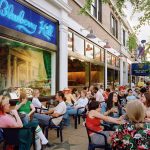Farm to Table is an idea the GDA promotes and admires. We encourage restaurants to buy local produce from local farmers whenever possible to promote higher nutritional value and keep money in the local economy.
Some of our member restaurants have taken Farm to Table to the next level, with container gardens, traditional gardens, and full-scale farms, both urban and rural, that produce produce, as well as the occasional honey and eggs, for their menus.
We are so impressed by this ultra-local, ultra-conscious practice that we decided to take the time to share their amazing work with you. We took a farm photo tour of the GDA, and will be spending the next few weeks posting features about some of our hardworking farmer restaurateurs.
The first stop on our photo tour was a ½-acre urban farm on Chouteau Avenue, hidden behind a spillover parking lot, often filled to the brim with Mac trucks. The farm has fruit trees, bee houses, and 28 vertical towers, in addition to the more conventional rows of tomatoes, squash, melons, and peppers. This mighty urban farm is owned by Paul Hamilton, owner of Vin de Set, Eleven Eleven Mississippi, Moulin Events, and PW Pizza.
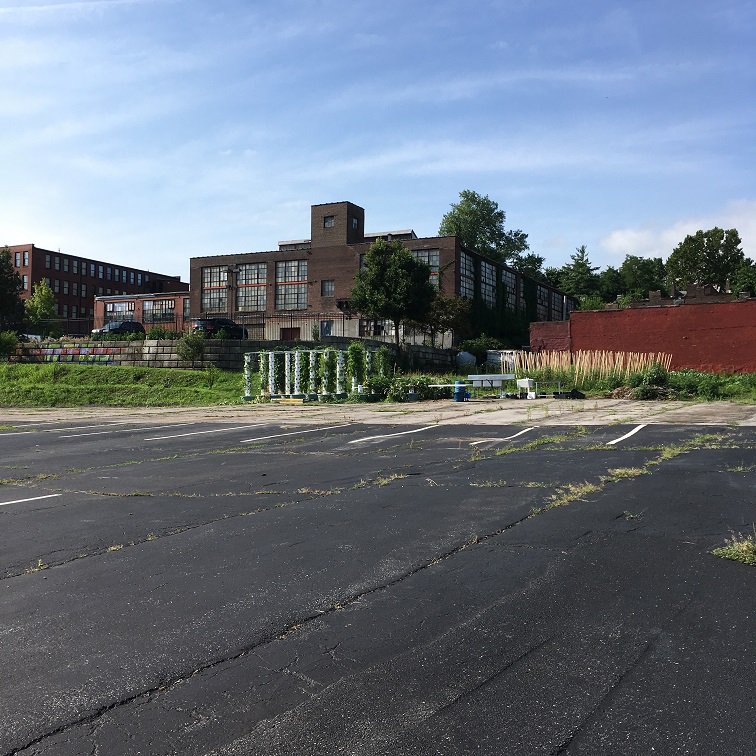
The farm sits behind a massive parking lot on Chouteau Ave.
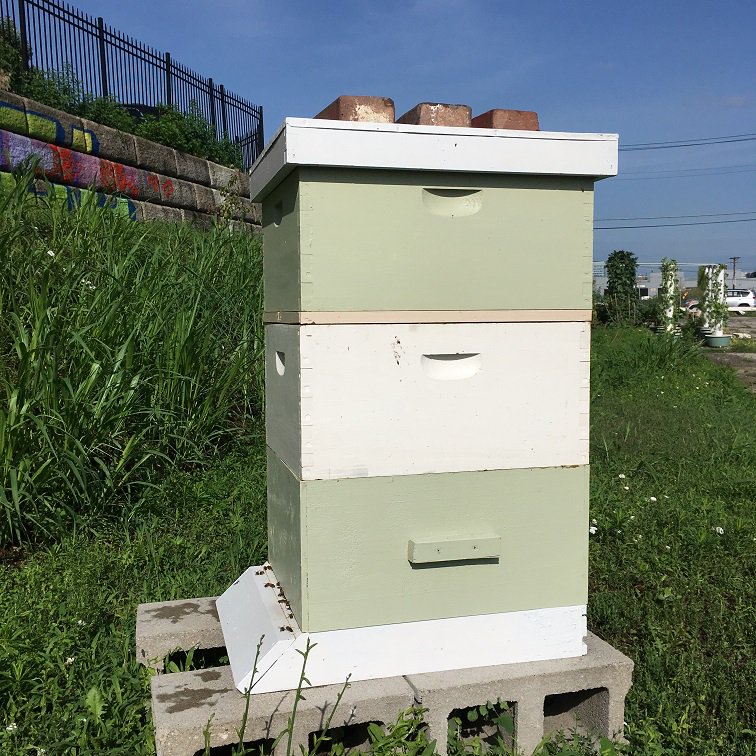
Bee houses are topped with the bricks that grace the exterior of the Hamilton restaurants.

The farm is so big it requires a paid farmhand, gardener Nathan Wolff, who earned his farming chops from EarthDance Farms.
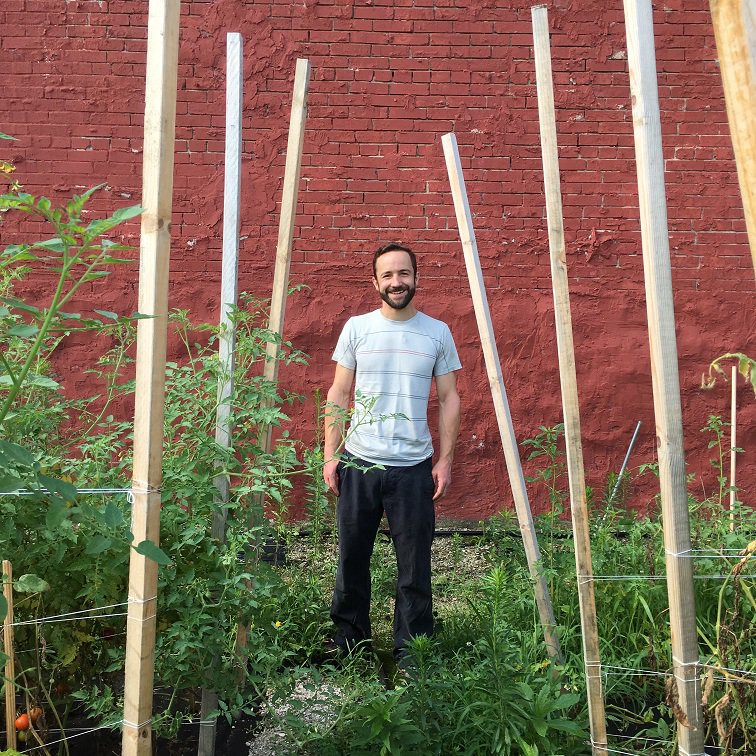
Farmer Nathan Wolff cares for the 1/2-acre of crops.
The vertical towers are an innovative and unusual part of the farm. The tall towers run on aeroponics, a system that, according to NASA,“can reduce water usage by 98 percent, fertilizer usage by 60 percent, and pesticide usage by 100 percent, all while maximizing crop yields. Plants grown in the aeroponic systems have also been shown to uptake more minerals and vitamins, making the plants healthier and potentially more nutritious.” Wolff loves it because “it’s just harvesting – no weeding!” The vertical stacks grow mostly greens like kale and mustard greens, but they plan on growing beans later in the season.
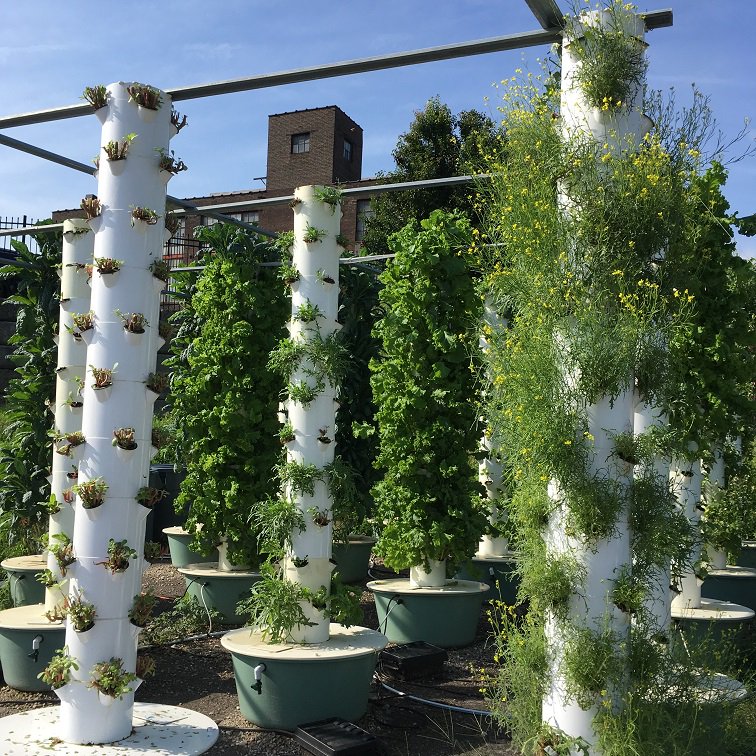
Vertical towers grow greens and beans.

Aeroponic watering system for the vertical towers.
Wolff grows the food organically, using tactics like fish oil, cayenne pepper, and landscape fabrics to fight against weeds and pests. Some weeds are allowed to grow because they can be harvested; lambs quarters, for example, taste a bit like Chinese broccoli and spinach.

Lambs quarters are allowed to prosper on the farm.
The farm has over 50 tomato plants, including heirloom varieties such as Cherokee Purple. The tomatoes are lifted from the ground using the Florida Weave technique, where they are encouraged to grow vertically between strings tied to posts.
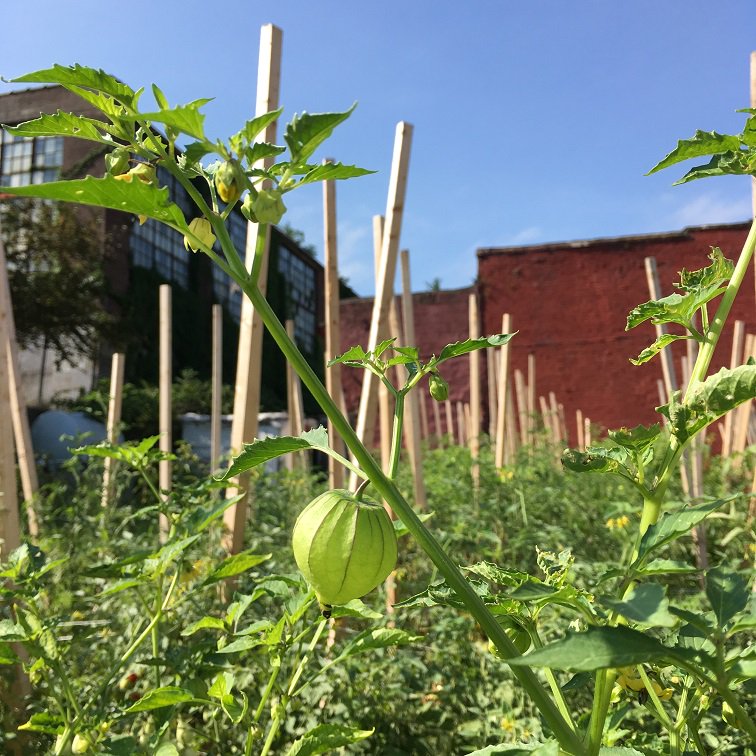
Florida Weave technique protects tomatoes from pests.
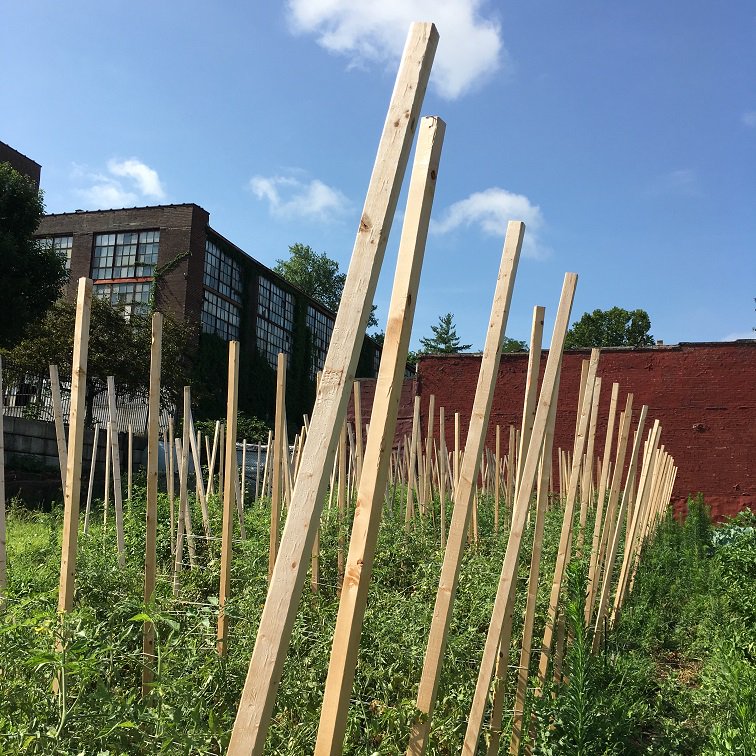
Wolff credits EarthDance Farms for teaching him permaculture techniques used on the farm to minimize inputs like water and fertilizer and maximize pounds of harvested crops.
The farm for the Hamilton restaurants shows how an urban landscape can be turned into useful, productive land, feeding the guests of some of the best restaurants in town.
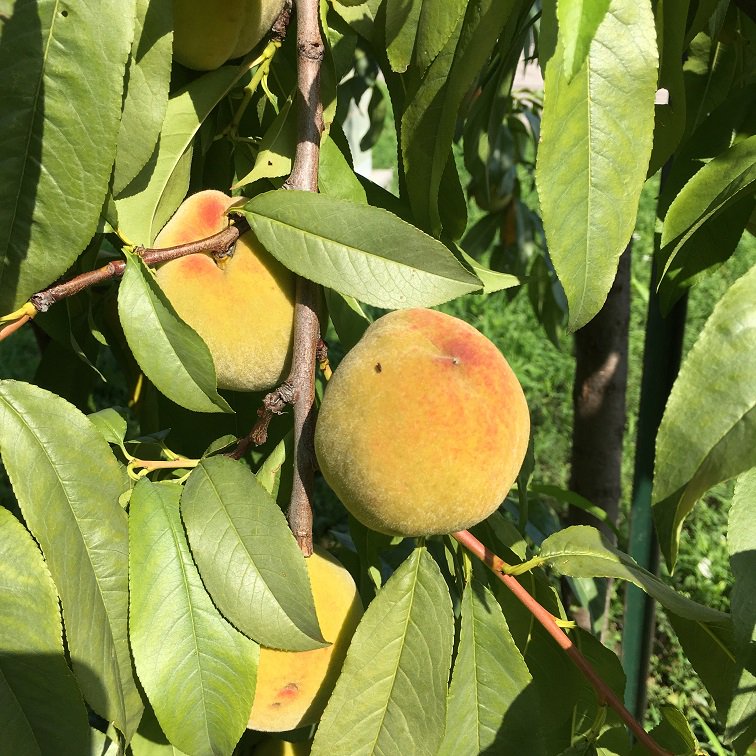
Fruit of Wolff’s labor.
Stay tuned for more from the GDA Farm Photo Tour!




